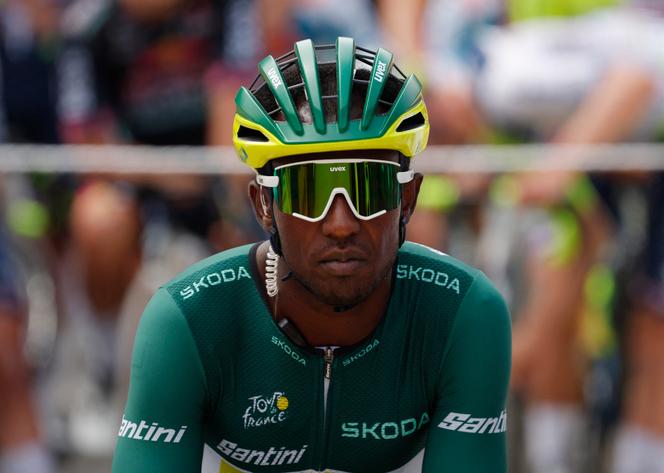


The song "Gombel" (meaning "powerful" in the Tigrinya language) is played on repeat in the cafés of Asmara, the capital of Eritrea. This summer hit, recorded in the wake of the Tour de France 2024, sings the praises of Biniam Girmay, who won three stages and was awarded the green jersey for best sprinter. The gombel one in question is Girmay, 24, an inspiring presence on the Tour and now a national idol.
The Eritrean people have been waiting for this. The reclusive country in the Horn of Africa is in need of a hero. "Bini" (his nickname) quickly assumed the mantle of local glory. With each of his three successes in the world's most prestigious cycling event in July, the streets of Asmara went wild: horns honking, young people on the roofs of cabs late into the night with photos of him in hand, green, red and blue flags on their backs, swaying to the rhythms of Tigrinya music. Scenes of rare fervor in a nation kept under strict social control.
Biniam Girmay, the first Black African cyclist to win a stage in the Tour de France, will be riding in his national colors on Saturday, August 3 in the road race at the Olympic Games in Paris on a circuit suited to his explosive sprinter-puncher abilities.
But whatever his result at the Olympics, he will be received like a messiah in Asmara. Given the procession of tens of thousands of people who greeted his return in 2022 after he won a stage in the Giro d'Italia, it's hard to imagine the scale of the reception this small, cycling-obsessed African nation is planning for its idol.
"Biniam is our king, nobody is as popular as him," enthused one Eritrean journalist, who did not wish to be identified. "With the exception of the president, of course!" he hastened to add. Indeed, the figure of the authoritarian 78-year-old Isaias Afwerki, head of state in undivided power since 1993, is as inescapable as he is unassailable in Eritrea. To overshadow him is unthinkable.
For his part, Girmay, with his pronounced dimples, prefers discretion. Despite being the new superstar of African sport, the sprinter is nonetheless a modest young man. "He's a nice guy, a real nice guy," said Jean-Jacques Henry, who coached him for two years at the International Cycling Union's (UCI) World Cycling Center in Switzerland. "So much so, in fact, that I thought he was too nice on the bike this summer during the Tour de France. He could have used more elbows and shoulders during the sprints. He was wearing the green jersey, and that's got to command respect from the other guys."
You have 60.97% of this article left to read. The rest is for subscribers only.
